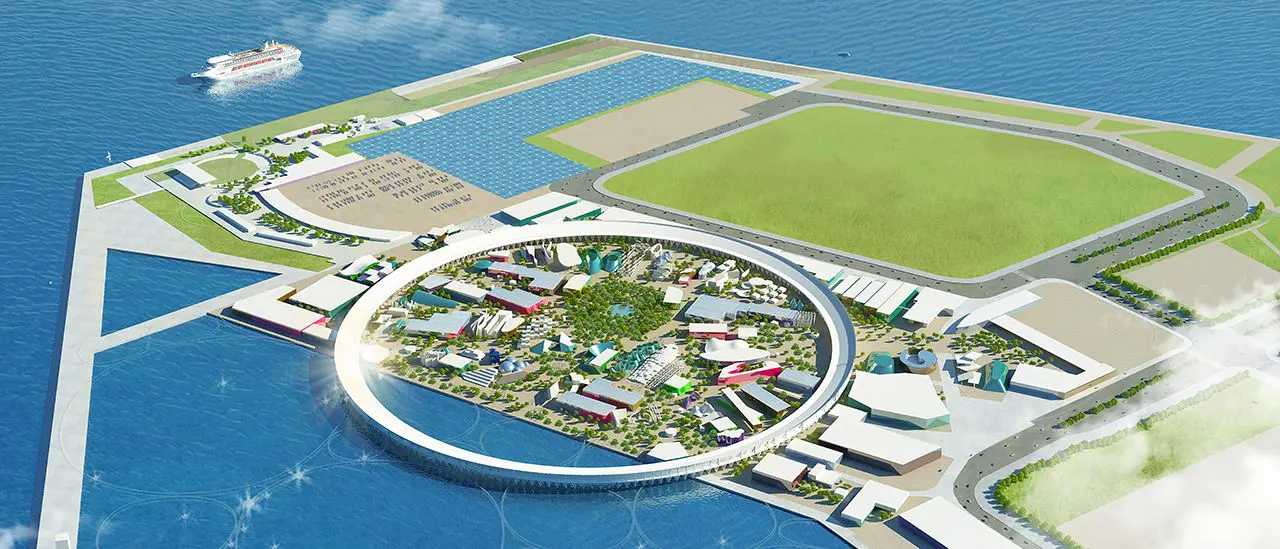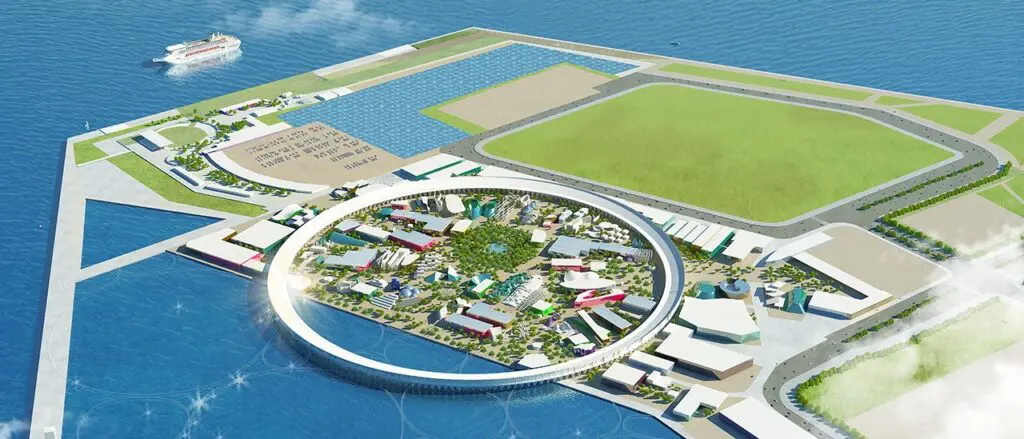Osaka Expo 2025: What Are We Really Celebrating?
Osaka Expo 2025 is being billed as a grand national celebration. But instead of embodying progress, it feels more like a government-sponsored hallucination—an expensive fantasy propped up by nostalgia and wilful disregard for contemporary reality.
On April 14, Al Jazeera published a pointed critique titled “Japan’s Expo 2025 revives memories of Tokyo Olympics cost blowout“, laying out the predictable cost overruns, construction delays, and logistical disarray plaguing the Expo. Yet buried within the article is something even more revealing: a delusional comparison to the 1970 Osaka Expo, as if fifty-five years of geopolitical, economic, and demographic transformation have no bearing on present-day Japan.
This is not just an event gone wrong. It’s a symptom of a country increasingly governed by ghosts.
1970 Was Not a Template—It Was a Climax
Today, Japan is a radically different country. It has:
- The world’s oldest population, with more than 1 in 10 people over 80.
- Over 8 million vacant homes, many in regional areas with crumbling infrastructure.
- A sluggish economy that relies increasingly on tourism and low-margin services.
- A governance structure frozen by bureaucracy and patronage.
To compare 2025 to 1970 is not aspirational—it’s regressive. It’s a denial of how much has changed, and how little the state has adapted.
Cost Overruns Are a Feature, Not a Bug
Let’s not pretend this is just about rising material costs or global inflation. Japan’s megaprojects have consistently run over budget, from the 2019 Rugby World Cup to the Tokyo 2020 Olympics, which ballooned to over $15 billion despite early estimates of $7 billion.
Now, the Osaka Expo 2025 budget has already doubled to 235 billion yen ($1.6 billion)—and that’s before factoring in the separate costs of infrastructure, security, or potential pandemic contingencies. The fact that this comes as a surprise to anyone reflects the media’s short memory and the public’s learned helplessness.
Meanwhile, projects with far more long-term value—like digital infrastructure in rural Japan, vacant property revitalization, or support systems for elder care—remain underfunded and under-prioritized.
Who Is This For?
Expo planners claim the theme of “Designing Future Society for Our Lives” is inclusive. But who exactly is designing this future? And who will live in it?
According to Al Jazeera, over 70% of the Expo’s contractors are large construction firms closely tied to the central government. Many have direct links to previous scandal-ridden projects. Meanwhile, Osaka’s actual residents—especially the aging and economically marginalized—will face rising prices, increased congestion, and little direct benefit.
Japan’s youth, increasingly disenchanted with politics and corporate life, are largely uninterested. And the global public? Most people outside Asia have barely registered the event.
If this Expo has a target demographic, it’s not the future. It’s the past: the remaining generation of decision-makers who still dream in black-and-white footage of Expo ’70.

Aging Society, Outdated Thinking
The Expo’s deeper failure is philosophical. Rather than confront Japan’s most urgent challenge—a demographic collapse unlike any in the developed world—it buries the crisis under technocratic optimism and pixel-perfect design renders.
Japan does not need another multibillion-yen monument to itself. It needs radical experimentation in governance, technology adoption, and local revitalization. Not Age-Tech to monitor the elderly, but a new social contract that redistributes land, power, and opportunity to younger generations.
As discussed in our prior piece, “Age-Tech as Acquiescence”, framing aging as inevitable limits the imagination. And if imagination is what Expos are supposed to spark, Osaka Expo 2025 is already a failure.
What Could That Money Have Done?
- A nationwide digital education program for young people in rural areas.
- Thousands of grants for local entrepreneurs to renovate and reinhabit vacant properties.
- Massive upgrades to Japan’s municipal web infrastructure, still stuck in the early 2000s.
- Expanded language and visa programs to integrate foreign workers more effectively.
Instead, we get floating pavilions with questionable engineering, corporate booths with vague “future tech,” and a red carpet rolled out for international dignitaries and construction conglomerates.
The ROI on this event will not be measured in ideas, but in contracts, kickbacks, and confusion.
Japan Inc. Is Losing the Plot
Osaka Expo 2025 is not a vision of the future. It’s an accidental museum of a country that once had one. It represents a government unable to think beyond its own legacy media cycle, clinging to outdated frameworks in the hope that pageantry will paper over failure.
We don’t need Expo 1970 nostalgia. We need a generational reboot—one that rewards local innovation over national spectacle.
If Japan is to remain relevant in the 21st century, it must stop designing “societies for our lives” and start redesigning governance for the lives we’re actually living.

